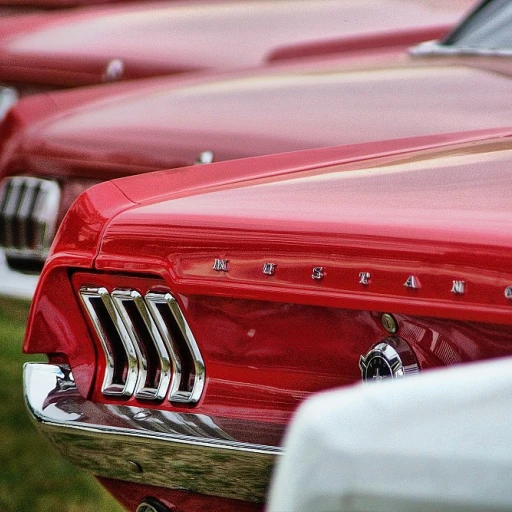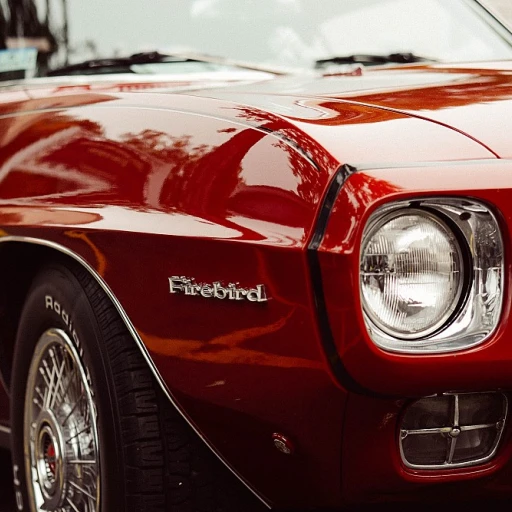
The Importance of Head Gaskets in Range Rovers
When it comes to luxury vehicles like the Range Rover, the significance of the head gasket within the engine cannot be overstated. As a crucial component, the head gasket ensures a proper seal between the engine block and the cylinder head. This seal keeps coolant and engine oil from mixing while maintaining optimal pressure in the combustion chamber.
The head gasket’s role is pivotal in maintaining engine efficiency and avoiding overheating. In a Range Rover, where performance and reliability are of utmost importance, a malfunctioning head gasket can lead to severe engine damage and costly repairs. It's essential to understand the benefits of maintaining vital engine components to prevent damage that could jeopardize your luxury vehicle's performance.
Regular maintenance and quality service can help preserve the integrity of your Range Rover's engine. Routine checks on the valve cover and coolant levels, as well as monitoring engine oil condition, can help identify issues before they escalate.
Signs Your Range Rover Might Need a Head Gasket Repair
Indicators of a Potential Gasket Issue in Your Land Rover
When it comes to the well-being of your Range Rover, paying attention to early warning signs of a head gasket failure can prevent more extensive damage and costly repairs. Recognizing these signs early helps in maintaining the prestigious stature of your luxury vehicle.- Engine Overheating: One of the primary signs can be recurrent engine overheating. This might occur when coolant leaks from a compromised gasket into the engine block, causing the engine temperature to soar beyond safe limits.
- White Smoke: If you notice excessive white smoke from the exhaust, it could be due to coolant entering the cylinders. This is often accompanied by a sweet odor, indicative of burning antifreeze.
- Oil Leaks: Keep an eye on oil spots under your vehicle. An oil leak may suggest that the oil passages within the head gasket are failing to keep the oil sealed in, possibly due to damaged head bolts or a worn out gasket.
- Loss of Power: A noticeable reduction in the car’s acceleration capacity can signal a failing gasket. If the combustion chamber struggles to maintain pressure due to a cylinder head leak, the engine may not perform optimally.
- Coolant Discoloration: When coolant mixes with engine oil or combustion gasses breach into the cooling system, you might notice a milky appearance in the coolant or oil dipstick. This is a red flag indicator of head gasket troubles.
- Unexplained Coolant Loss: If your Range Rover frequently needs a coolant top-up without any visible leaks, the coolant may be seeping into the combustion chamber or engine oil.
Factors Influencing the Repair Costs
Understanding the Factors That Impact Repair Costs
When it comes to head gasket repair for your Range Rover, several factors can influence the overall repair costs. It's essential to get a clear picture of these elements to manage your expectations and avoid surprises at the repair shop.
1. Severity of the Damage: The extent of damage to the head gasket can significantly affect the repair costs. A minor leak might only require a head gasket replacement, but in more severe cases where the engine has suffered damage, additional parts such as the cylinder head or engine block may need to be serviced or replaced.
2. Parts and Labor: The price of the parts, including gaskets, head bolts, and valve covers, can vary depending on the model of your Land Rover, like a Rover Evoque or Rover Discovery. Labor costs also fluctuate based on the shop's location and the expertise required to work on a luxury vehicle like a Rover Sport.
3. Shop Location and Expertise: Repair costs can differ vastly depending on the shop's proximity and the technicians' specialization. Shops experienced with luxury vehicles such as Range Rovers or part networks like Atlantic British might charge more due to their expertise and the quality of service.
4. Additional Repairs: Often, when a head gasket is blown, other issues such as oil leaks or coolant system problems might need attention. Fixing these additional issues will naturally increase the total repair cost.
Understanding these factors is crucial for any luxury vehicle owner. Proper research and selection of a reliable shop can protect your investment in your Range Rover and ensure that you receive quality service without unnecessary expenses.
Choosing the Right Repair Shop for Your Luxury Vehicle
Finding the Perfect Shop for Your Range Rover Repairs
When it comes to repairing a critical component like the head gasket in your Range Rover, choosing a trustworthy repair shop is essential. Your luxury vehicle deserves specialized care to maintain its performance and longevity. Here’s what you should consider:- Expertise in Land Rover Repairs: Look for a shop that has extensive experience with Land Rover vehicles, particularly the Range Rover series. Familiarity with the specific nuances of these cars can make a significant difference in the quality of service.
- Certified Technicians: Ensure that the mechanics are certified and have experience working with luxury cars. Certifications from organizations like ASE can be a good indicator of technical expertise.
- Use of Genuine Parts: Verify that the shop uses genuine Land Rover parts for any replacement, be it a head gasket, cylinder head, or valve cover. Genuine parts ensure compatibility and longevity.
- Clear Breakdown of Costs: Request a detailed estimate before proceeding with the repair. This should include the cost of parts such as the head gasket, labor, engine oil, and any other necessary replacements.
- Reputation and Reviews: Check online reviews and testimonials to gauge the shop’s reputation. Past customer experiences can provide insight into their service quality and customer satisfaction.
- Warranty on Repairs: Inquire about any warranties or guarantees on parts and labor. This can provide peace of mind knowing that the repairs are protected in case of future issues.
Preventive Measures to Avoid Costly Repairs
Strategies to Safeguard Your Cylinder Head and Engine
Experiencing a head gasket failure in your Range Rover can be a substantial financial burden due to its intricate engine design and the labor-intensive process required for gasket replacement. Implementing preventive measures can help you avoid such costly repairs while maintaining your vehicle’s performance.- Regular Engine Service: Consistent maintenance is crucial for luxury vehicles like Land Rover and Range Rover models. Regularly changing engine oil and checking the coolant levels can significantly reduce the risk of your head gasket developing issues. Keeping the engine's temperature in check is vital to prevent overheating, which is a common cause of gasket damage.
- Coolant System Checks: The cooling system should be inspected regularly. Make sure there are no leaks and that the coolant is not dirty or rust-colored. A properly functioning coolant system ensures the engine doesn't overheat, safeguarding your head gaskets and the overall engine block.
- Inspecting for Leaks: Routinely check for oil or coolant leaks around your cylinder head and valve cover. Addressing minor leaks early on can prevent bigger issues, such as a blown head gasket.
- Pay Attention to Warning Signs: Familiarize yourself with abnormal smoke from the exhaust, unusual engine noises, or an overheating engine. Early detection of these signs can save you from the lengthy and costly replacement process down the road.
- Using Quality Parts: If repair work becomes necessary, ensure that quality parts such as head bolts and gaskets are used, preferably sourced from reputable suppliers like Atlantic British. Employing inferior components could lead to repeated failures.
Understanding Warranty and Insurance Coverage
Maximizing Your Warranty and Insurance for Optimal Coverage
Understanding your warranty and insurance coverage is crucial when dealing with the costs associated with head gasket repairs in your Range Rover. Whether you own a Rover Evoque, Rover Discovery, or the classic Series III, knowing what is covered can significantly impact your repair expenses.- Warranty Considerations: Most new Land Rovers come with a manufacturer's warranty that might cover head gasket issues, especially if they are due to manufacturing defects. It's important to check if your warranty is still valid and what specific parts, like the cylinder head or valve cover, are included. Keep in mind that wear and tear or lack of maintenance might not be covered.
- Insurance Policies: Your car insurance policy might offer some coverage for repairs, but this often depends on the cause of the damage. For instance, if the blown head gasket is due to an accident, your insurance might cover it. However, regular wear and tear typically isn't included. Reviewing your policy details can help clarify what repair costs you might need to bear.
- Extended Warranties: If your Range Rover's original warranty has expired, an extended warranty might be a worthwhile investment. These warranties can cover the replacement cost of critical parts, such as head bolts and the engine block, which can be expensive.
- Service Records: Keeping detailed service records can be beneficial when making a warranty claim. It demonstrates that you have maintained your vehicle according to the manufacturer's recommendations, which can support your case if there is a dispute over coverage.
- Consult Your Dealer: Before proceeding with any repair, consult your Land Rover dealer or authorized service shop. They can provide detailed information on what your warranty or insurance will cover, potentially saving you on repair costs.













